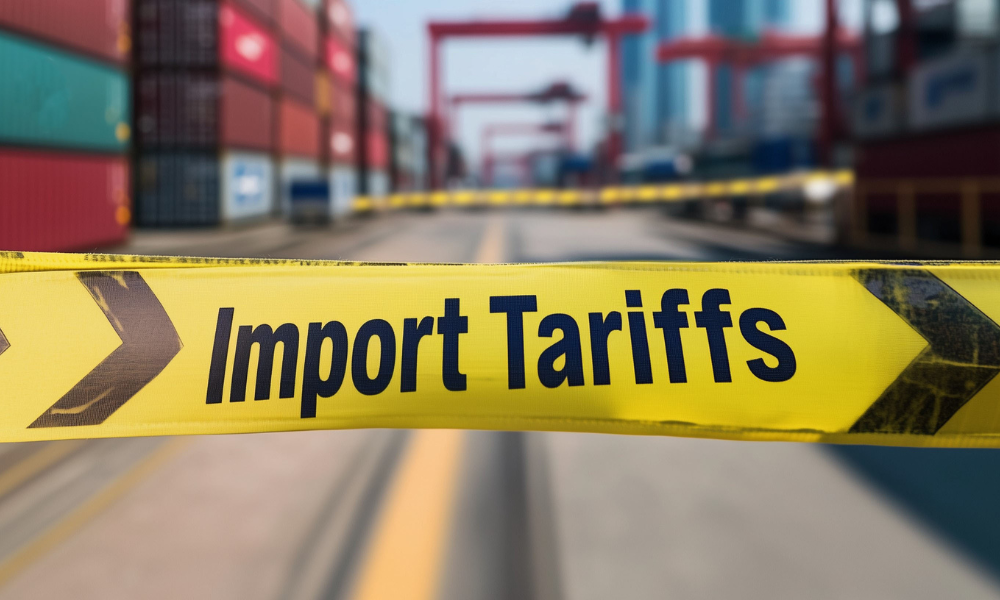Canada prepares for long-term US tariffs as talks with Trump administration near critical stage

Canada may need to accept a baseline tariff on exports to the United States as part of any future trade deal, according to Prime Minister Mark Carney, who said Tuesday there is “not much evidence at the moment” that a tariff-free agreement is possible with the current US administration.
Carney made the remarks in French ahead of a cabinet meeting on Parliament Hill, noting that “from the deals, agreements and negotiations with the Americans, for any country or any jurisdiction — to get a deal without tariffs” appears increasingly unlikely.
His comments follow US President Donald Trump’s warning that a 35 percent tariff on Canadian products will take effect August 1, as reported by BNN Bloomberg.
The Prime Minister added that Canada remains “uniquely positioned” to maintain “almost free trade” with the United States through compliance with the Canada-United States-Mexico Agreement (CUSMA).
However, the US has imposed sector-specific tariffs — particularly under Section 232 trade law — targeting Canadian steel, aluminum, autos, and potentially pharmaceuticals and copper.
According to CBC, Carney acknowledged these areas “need to be stabilized,” especially where they have led to production declines and job losses.
For plan sponsors and institutional stakeholders, Carney’s statement that “we will continue to focus on what we can most control, which is building a strong Canadian economy” underscores a shifting policy environment where long-term trade certainty remains elusive.
He said cabinet discussions would centre on strategies to reinforce sectors like steel, aluminum, and autos, areas already under pressure from existing levies.
As per The Globe and Mail, Carney confirmed that trade talks with the United States will “intensify” before the August 1 deadline.
The date was revised after Trump dismissed an earlier July 21 target set during the G7 summit in Kananaskis.
Trump declared via Truth Social that letters sent to foreign leaders — including Carney — represent the final deal terms. “The letters are the deals,” Trump said, as quoted by CBC.
Conservative Leader Pierre Poilievre criticised the Prime Minister’s approach, calling it “another unilateral concession from a man who said he would never back down to the US president,” according to The Globe and Mail.
NDP interim leader Don Davies also stated, “Conceding to a bully never ends,” urging the government to avoid “unilateral concessions without securing reciprocal benefits.”
As per the Angus Reid Institute, 63 percent of Canadians support a “hard approach” — refusing concessions even at the risk of worsening trade relations.
The survey, conducted before Trump’s 35 percent tariff threat, found 37 percent preferred a “soft approach” that prioritises maintaining bilateral ties.
Shachi Kurl, president of the Angus Reid Institute, told CTV News that public confidence in Carney’s ability to secure a deal is divided.
While 48 percent are confident — either due to trust in the Prime Minister or the belief that Trump will reverse course — 45 percent expressed skepticism, citing either distrust in Carney or Trump’s unpredictability.
Trade experts are also adjusting their expectations.
International trade lawyer William Pellerin of McMillan LLP said Carney’s remarks serve as a “wake-up call” for Canadian businesses, especially those hoping to return to a tariff-free environment.
Speaking to CTV News, Pellerin said the government may be “laying the groundwork or setting expectations,” and that “today might have been kind of the first opening, or the first time that we’ve really heard that we might not get there.”
Pellerin added that Canada’s average effective tariff rate remains low due to high CUSMA compliance. However, sectors like steel and aluminum continue to suffer.
“If Canada could get to a place where we have just a very low baseline tariff that applies only to a certain subsect of products, I think we could be OK,” he said.
According to the New York Times, the United Kingdom and Vietnam, despite concluding trade talks with the Trump administration, still face 10 and 20 percent tariffs, respectively.
Canadian trade lawyer Lawrence Herman said any notion of tariff-free trade with the US is now over.
“There are no rules that Trump respects, whether global or under separate trade agreements like USMCA,” Herman stated.
Herman warned that the 2026 USMCA review could further destabilise trade.
Trump could issue demands for one-sided changes, and if rejected, the US could exit the agreement with six months’ notice.
Canadian agricultural exporters also raised concerns about broad-based tariffs.
Michael Harvey, executive director of the Canadian Agri-Food Trade Alliance, told The Globe and Mail, “It’s very important that the country not accept broad-based tariffs on everything,” highlighting that most agri-food exports remain tariff-free under CUSMA.
Goldy Hyder, president of the Business Council of Canada, said the goal should be achieving the lowest possible tariff rate and maximising exemptions.
He added that deeper trade diversification should now be a policy priority. “It’s become clear that free trade with United States is no longer free. It comes with a price of entry.”
Carney said the government has consistently stood up for Canadian workers and will continue to do so.
He has also committed to reviewing counter-tariff responses, including potential increases on US steel and aluminum, if talks fail to produce a satisfactory deal by the end of the month.



